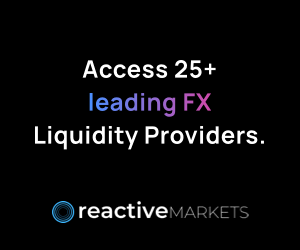Hedge Funds “More Resilient…Emerging Stronger”: AIMA
Posted by Colin Lambert. Last updated: June 1, 2022
The Alternative Investment Management Association (AIMA), in partnership with Cowen, has published a new report presenting an analysis of the global emerging hedge fund manager community, which, it says, reveals a community of hedge fund managers that has “weathered the recent macro-economic turmoil and have emerged hardier and more resilient than before”.
The report, Emerging Stronger: The Next Generation Manager Survey 2022, provides an update to a 2017 report by AIMA which looked at the same demographic, and is informed by two surveys: one of emerging managers running up to $500 million in assets under management (AuM), and another of the investors that allocate to them.
Key areas of focus in the surveys included fees charged, average headcount, costs (including the estimated breakeven costs) and the average length of time to close on a new investment, among other areas. AIMA says the data was also interrogated by groups of emerging managers in APAC, North America and EMEA to add context to the numbers.
The manager survey had 149 respondents with an estimated aggregate AuM of $16.7 billion and an average AuM per manager of $112 million. The investor survey had 26 respondents who together allocated around $50 billion to hedge funds. Just under half (48%) of investors surveyed allocate more than $1 billion to hedge funds.
The survey finds that the average breakeven has fallen by 25% from its 2017 level of $86 million in 2017 to $64 million, while two-thirds of investors will consider allocating to hedge funds with less than $100 million AuM. The average time to close on new investments for emerging managers is taking 6.3 months on average and even less, 5.6 months, for managers of sub-$100m funds.
Investors appear more willing to engage with managers at an earlier stage in their lifecycle and are taking less time to agree to new investments
AIMA says these funds’ ability to weather the storm has been powered by slashing costs where possible (for example, in real estate and travel and headcount), sacrificing salaries, and the greater use of regulatory platforms.
The association also observes that for a long time, it has been recognised that fund managers must have a track record of at least three years and also boast an AuM of over US$100 million before most investors will consider them. “On both these counts, investors surveyed dismissed these views, with data showing that the vast majority would consider a fund that was less than three years old and had under $100 million AuM,” AIMA says. “Moreover, investors appear more willing to engage with managers at an earlier stage in their lifecycle and are taking less time to agree to new investments.”
Jack Seibald, managing director and global co-head of prime brokerage and outsourced trading at Cowen, says, “This research provides evidence of a changing landscape for both managers and investors. For funds with up to $500m AuM, the impact of the pandemic has resulted in leaner, more efficient and robust operations, with greater opportunities from investors than at any time in recent memory. The steps these funds have taken to safeguard their businesses during the pandemic stand them in good stead moving forwards. These firms have largely insulated their businesses from recession and have the resilience to withstand the predicted economic turmoil ahead.”
Tom Kehoe, managing director, global head of research and communications at AIMA, adds, “It’s heartening to see that despite the troubles of COVID, the next generation of fund managers are emerging leaner and more business savvy. Through this research, we have found that firms can build strong and thriving businesses on much less than was previously thought.
“Meanwhile, the stability of the fee levels since 2017 offers an optimistic health check on the industry and suggests investors continue to see value in allocating to emerging managers,” he adds.





